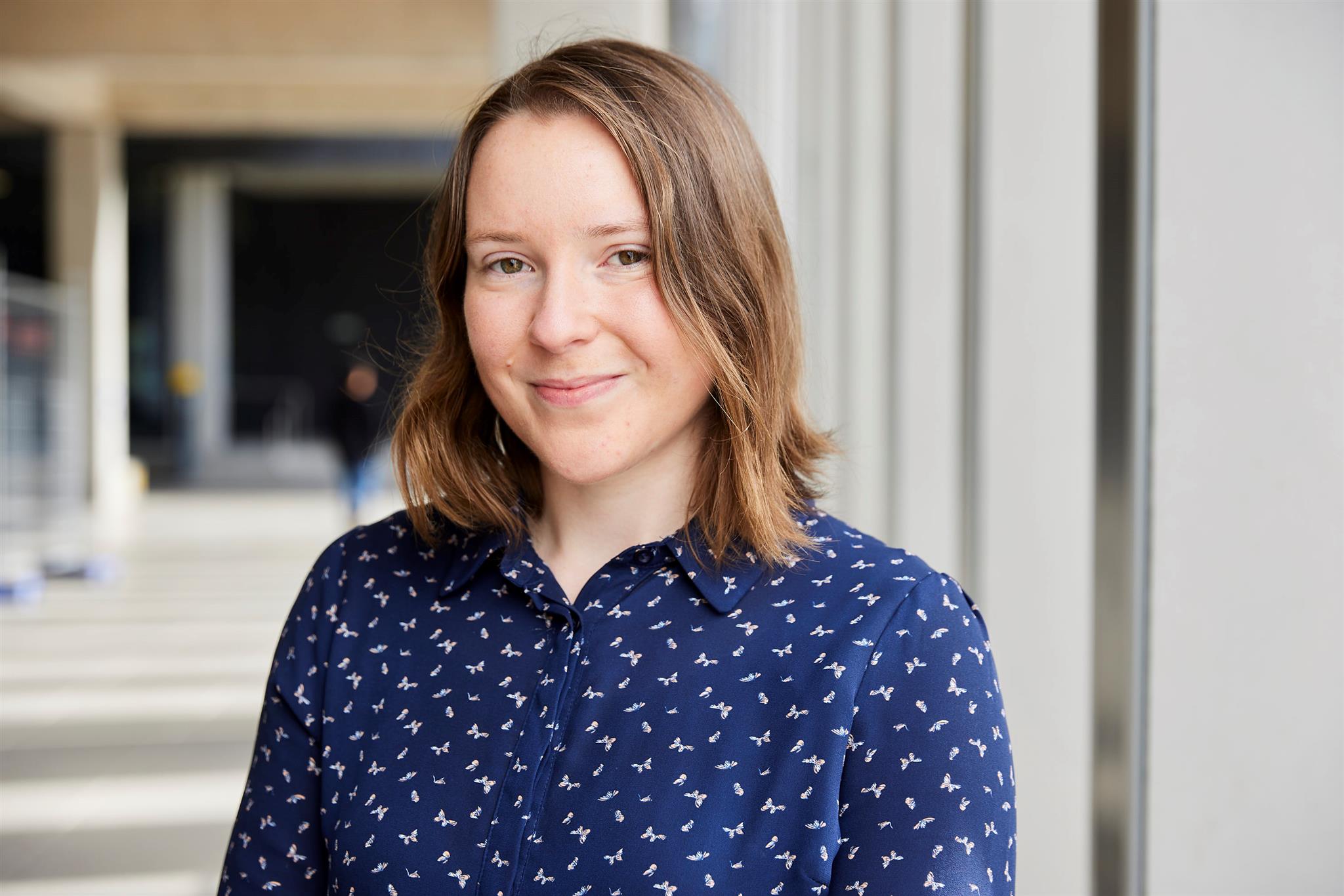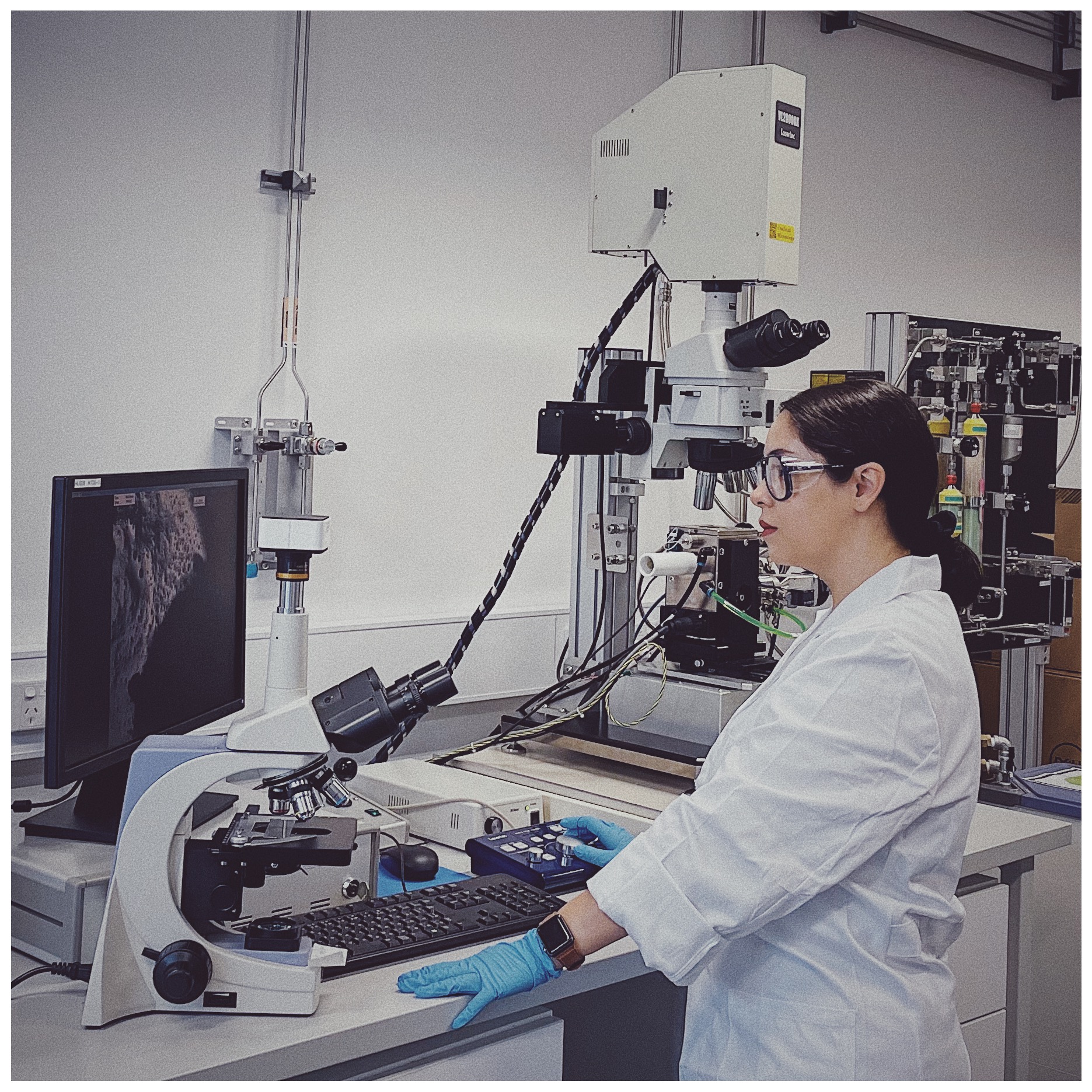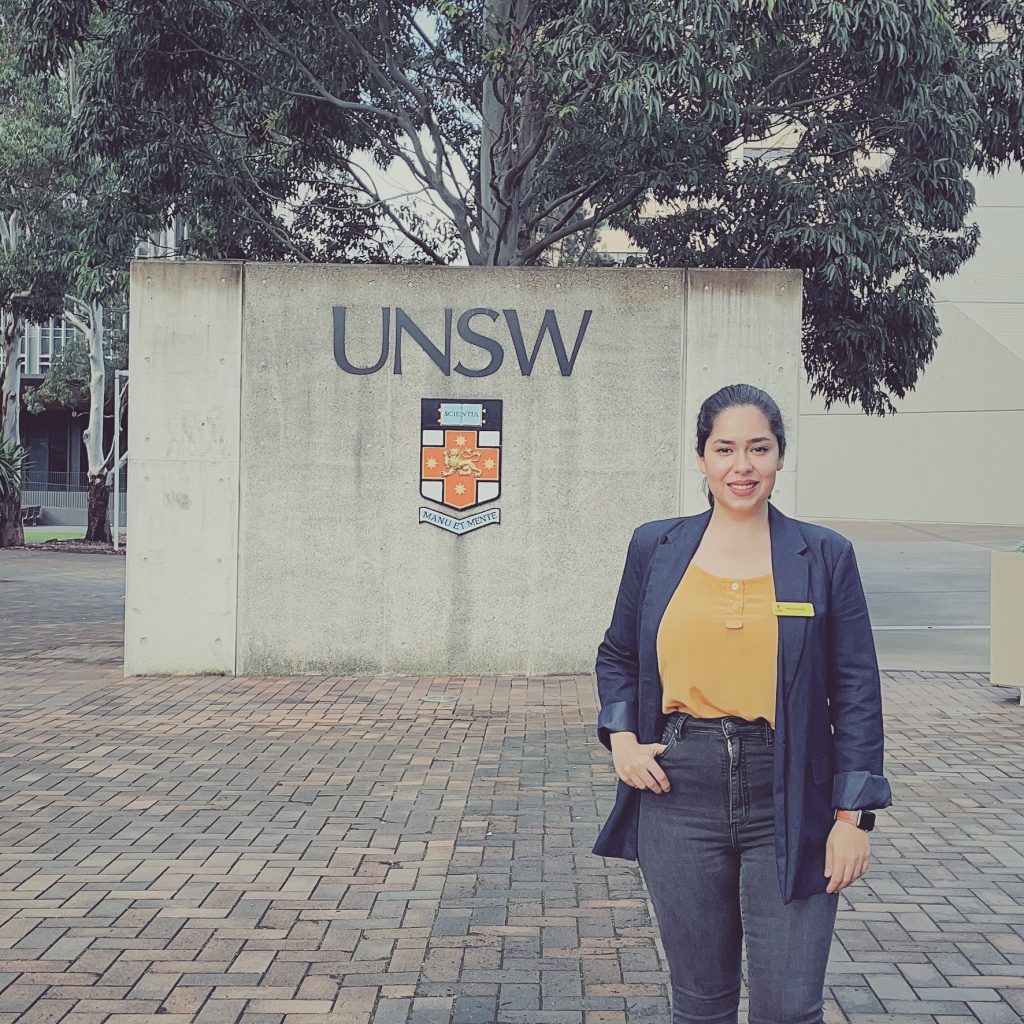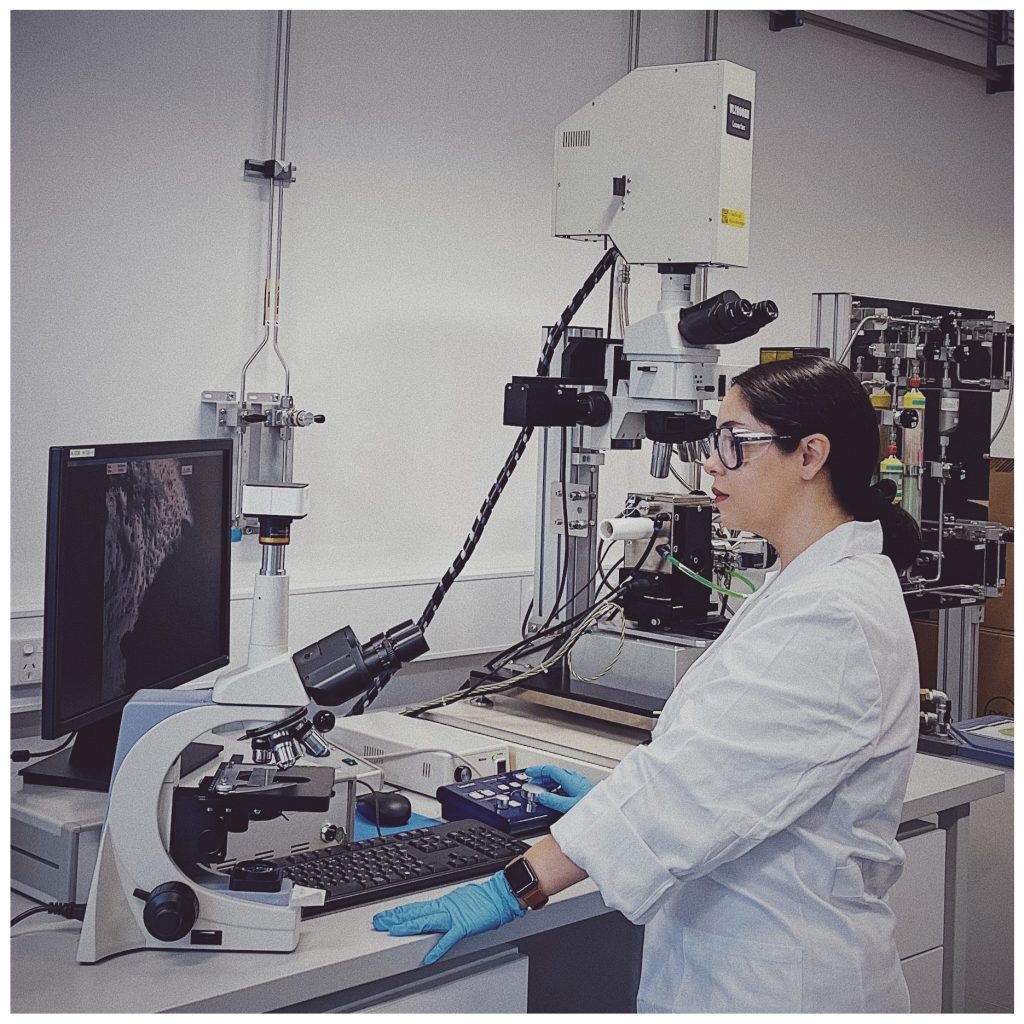Emma Harding is a UNSW Woman in Maths and Science Champion and a passionate paleovirologist. Her PhD research is a unique combination of virology and evolutionary biology, focussing on the distribution, evolution and function of endogenous viral elements in vertebrate genomes. With an interest in marsupials, she investigates the prevalence and expression of endogenous viral elements from RNA viruses in cells.
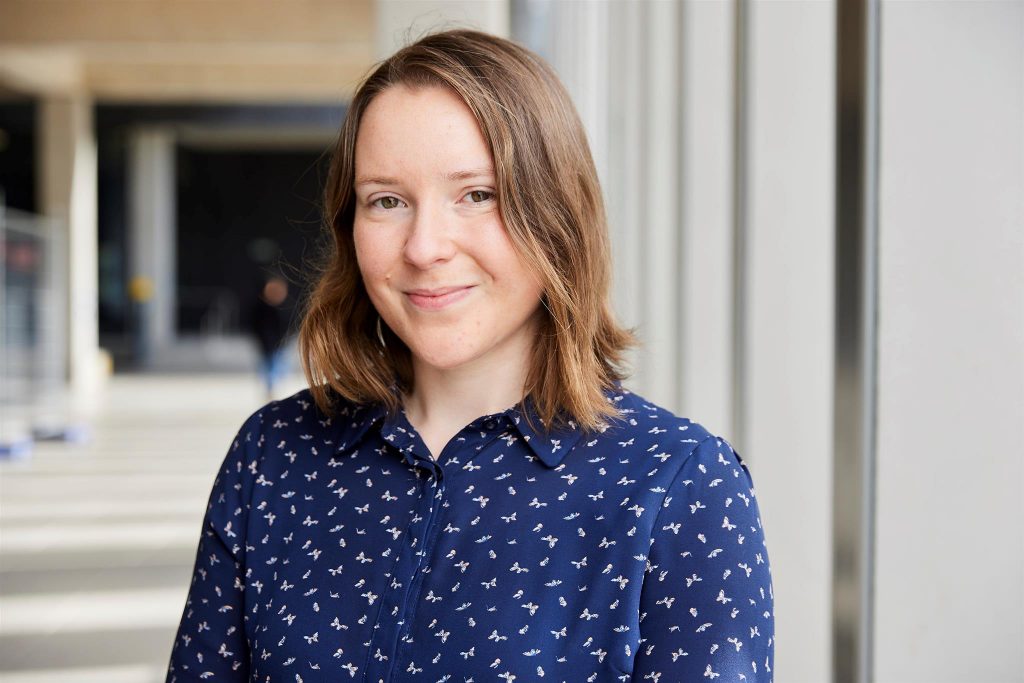
Since a young age, Emma has always been fascinated by science, with a particular interest in animals and paleontology. The film Jurassic Park contributed to her attraction to science (and it certainly helped that there’s a Dr. Harding in the second film). Now she works as a paleovirologist, where she is interested in the interplay between viruses and their hosts as well as the impact of viruses on the evolution of animals.
Emma started her tertiary education with a bioinformatics major at UNSW, using computational science to address biological questions. During her first year she completed microbiology courses, where she became interested in the complex arms race between viruses and their infected host. Eager to learn more, Emma decided to change to a major in Microbiology to better understand the complex processes between microbes and the immune system.
She undertook her Honours year under Prof. Peter White in the School of Biotechnology and Biomolecular Sciences at UNSW, investigating broad-spectrum antivirals against positive sense RNA viruses. In this research, she focused on a mosquito-borne family of viruses termed Flaviviridae, which include Zika virus, Dengue virus and West Nile virus. Her project involved expressing a viral enzyme called RNA-dependent RNA polymerase (RdRp) in bacterial cells and screening them against an array of antiviral compounds, with the aim of identifying drugs that could inhibit Flaviviridae. Emma worked as a Research Assistant in the same lab to finalise her experiments and investigate PhD opportunities.
Emma continued her postgraduate studies under Prof. White, commencing a PhD in 2020. Emma’s PhD research focuses on viral “fossils”. When a virus infects a host, DNA from the virus can enter the genome of the infected host and remain integrated through millions of years of evolution. These remnants of previous viral infections can be used as “fossils” to trace the evolution of viral families. Emma is interested in determining whether they have an evolutionary advantage, such as in normal viral defence or in developmental processes. She focuses on the viral families Bornaviridae and Filoviridae, which, despite the fact there are over 160 viral families, are among the most conserved viral fossils in vertebrates.
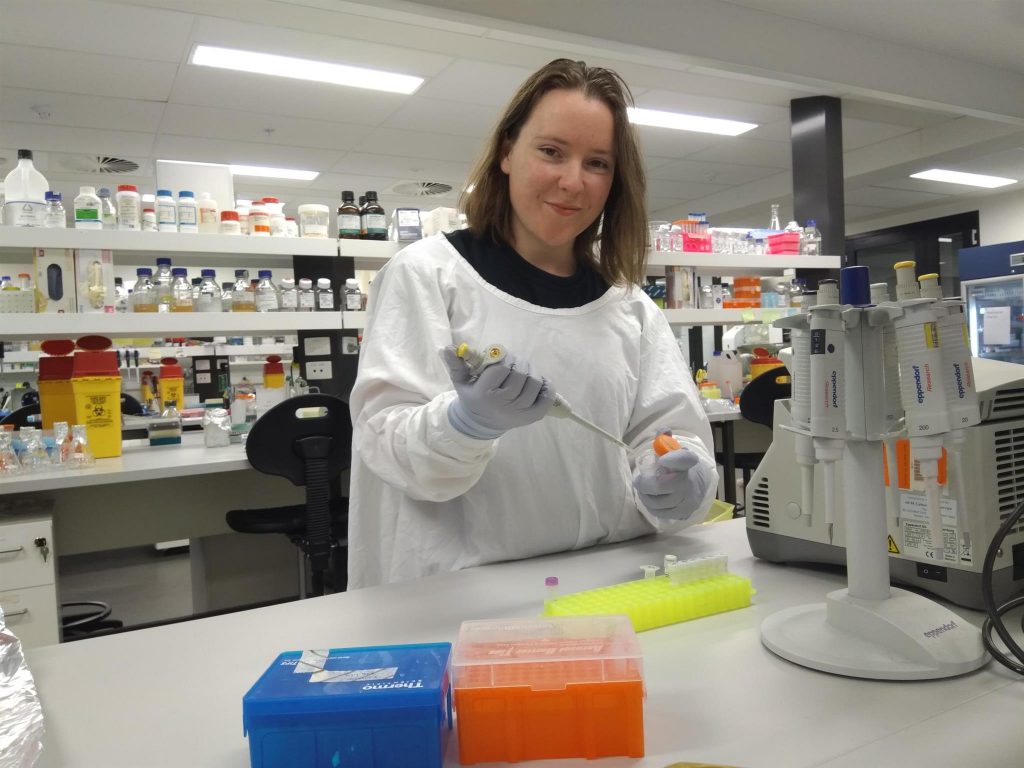
Emma predominantly performs her research using bioinformatics, coming full circle from the early focuses of her tertiary education. She comments on this, saying that if you enjoy a particular subject, eventually you’ll find yourself in that field, even if it takes a few different paths to get there. Alongside her research, Emma is listed as a UNSW Sydney COVID-19 expert.
Emma loves science not just as a career, but also as a hobby. She practices genetics in her spare time, using shrimp as her model organism of choice. She purchases different coloured dwarf Neocardinia shrimp, such as red shrimp and blue shrimp, and performs crosses, observing the colour of their offspring. She also enjoys playing Dungeons and Dragons, a fantasy game where players create their own characters that embark upon adventures together. Emma emphasises that, especially during the current pandemic, it is important to have hobbies and activities that keep you in contact with friends and family, whatever those hobbies may be.
The more I talk to Emma, the more abundantly evident it is that science truly is her passion. One piece of advice Emma has for young scientists is to give everything a try. She recommends taking different courses at university until you find your niche.
To find out more about Emma’s research, follow her on Twitter or visit her website.

